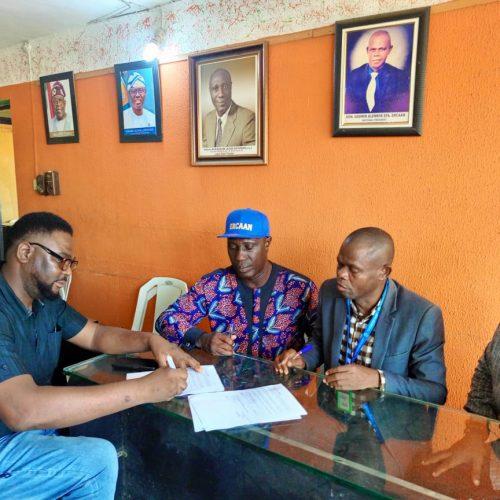Former Commissioner for Health in Lagos State Dr. Jide Idris spoke with EMMANUEL OLADESU, HALIMAT BALOGUN and TAMILORE MACAULEY on the giant strides of All Progressives Congress (APC) presidential candidate Asiwaju Bola Tinubu when he was governor of Lagos State and how he will replicate the feats at the centre, if elected in next year’s poll.
What are the challenges confronting the health sector in Nigeria?
The challenges are very many, but from my own assessment, when we talk of the challenges, we talk about the workforce, the human resources, the health issues, and the staff.
Number two, because social progress is slowed down by the high level of poverty, and illiteracy. Health insurance is still new. Funding is a major issue whatever you do, you need to fund. It is a major issue. If you look at the past, everybody looked at health from a purely curative point of view where people treated disease and where you are supposed to make people healthy. So, people come before you, you treat them, they go back. We need help to build more hospitals. Hospitals are just 20 per cent of the health sector. An example is when ebola came. Talking about our hospitals, how many of our hospitals are functioning? Everybody ran away because those hospitals were not properly designed to handle it. That’s one. Two, the staffs were not properly trained to handle it. Three, we have not developed our health care industry to take care of emergencies like this. They are called emergencies because you don’t know when they will come, but they will definitely come. So, you have to be prepared. Four, we talked that the basic backbone of the health sector, the primary health system, has issues. So, you can continue to say that there are many challenges, but to address these challenges, you have leadership and governance. Leadership, we don’t have any focus. So, those are the challenges and they are still present today. It is getting worse.
How should these challenges be tackled in this dispensation?
I look at the people that are expected to help, fighting with other people, competing to take over. Look at the three candidates or maybe four. We need somebody, you know our country is very complex, with different cultures and all. We need somebody that can resolve the challenges. Look, it is not only about going to school. Somebody who has the capability, who is courageous, who also understands the issue of nation building and who can handle this country, who can show leadership, that competency of leadership. See, a leader is somebody, he doesn’t necessarily need to have all the competencies, but who can Assembly talents, who can provide all things they require. He is somebody who can get things either by tapping on people’s expertise, getting people, or motivating people.
I think Asiwaju Bola Tinubu is the only one who is competent enough. But like I said, the country is complex. People are talking about those issues. We need someone who knows the history of our country. Some of them don’t even know the complexity of the country. They don’t even know the challenges in the various sectors. Maybe, in their various little sectors, they can have basic education, but, they don’t have experience and understanding of people like that.
To address the current situation now requires somebody who fully understands this country, and who has requite knowledge on how to bring the people together. We are diverse people. We need someone who can motivate people.
The economy is down, someone who understands the economy and can do something to reactivate the economy. Having done that, you have to address other sectors. Many of the sectors are there; agricultural sector, education sector, health sector, we talk of infrastructure.
We are building infrastructure, but are we able to maintain that infrastructure? No. We can build this one, but in another couple of years, they are down; there is nobody to maintain them. So, we need capabilities in specific areas where people can come and advice. It is a complex country, very complex, very tough. We just need some time to plan. You can get the right people together by addressing the issue with tenacity. These are the things I see because he demonstrated these when he came to Lagos in 1999.
Could you reflect on how he tackled the challenges of the health sector when he was governor?
It is an interesting thing when I look back. I think I will count myself lucky because I didn’t plan to be here then. I came from the United States. But like I will always tell people here, you need to be within an environment to understand the process and history of the environment. You need to be in government to understand the madness in it. If not, you will just come and criticize, assuming things. I underestimated him. But, I had to change my mind later because I experienced certain things. Later, I understood what he set out to do.

I came from the U.S. They had set up these technical working people to address the different sectors. So, by the time we came in, there was a technical working group established for the health sector and who headed it? The late Prof. Ransom Kuti. I wasn’t there. It was only the report I saw and I saw the contribution of those people who looked at the health sector. Based on the recommendations, he hit the ground running. He did the same thing for different areas like education, defense.
In the health sector, it is that document that he gave to us. Without that document, we would have spent the first two years trying to even understand what is happening in the sector. So, that’s the first thing we decided to do and they made recommendations based on the experience then and we were following those recommendations to the letter. In another situation or occasion, we amended them. So, some of those things they recommended things like health insurance. He said to plan for health insurance, deal with primary health care, preventive medicine. These were things Ransome-Kuti was saying, immunization, childhood illnesses, about 18 recommendations. After a few years, we have analysis, we felt that things were not moving as expected. So, they did a review of the system. So through the internal review, that’s what led to the health sector reform we did in Lagos State. It was that reform that made Lagos State to move faster than other states.
We have challenges. We need to address those challenges. What are the causes of those challenges? When we sat down, we felt this sector needed to be restructured. We can not live the same old style today. So, to restructure the health sector, there are different aspects of the sector you address. We didn’t address all because we can’t address everything. We addressed the key ones.
One of them had to be leadership and governance. In anything you do, governance is a major problem, especially in this country, especially in Lagos State. So, how do we restructure? We said that the Ministry of Health should have right to do what it is supposed to do. Ministry is about policy, monitoring laws and just overseeing the system, not to be doing everything that every other person will do. Let the doctors or the curative people deal with their functions in the hospital. So, what we did again was to decentralise hospital governance. There used to be a hospital management board in Lagos. You don’t centralize. We gave some partial authority to the general hospitals. They have their own problems because they needed to build capacity. We faced the issue of primary health care because it was a major issue.
Then, the health insurance, financing the health sector. We can not do all these without financing. So, in his own time again, he talked of free health. He made implemented free health because of his experience. There is a high level of poverty. Many people could not afford this, but for the free health. We agreed and when we started, we realized that we cannot fund this totally for many reasons. One, we don’t have the financing because they say health is a right, but somebody has to fund it.
Free health was targeted at children between five and 10 years, and below, adults and then, pregnant women because those are the major causes of diseases. He said let’s look at it and we started planning for insurance. So, in the selected hospitals too, we created the regulatory bodies called Facility Monitoring and Control Agency to monitor hospitals, both public and private, in terms of quality. It is just to ensure orderliness. That is why I say governance is important.
The Nation
















